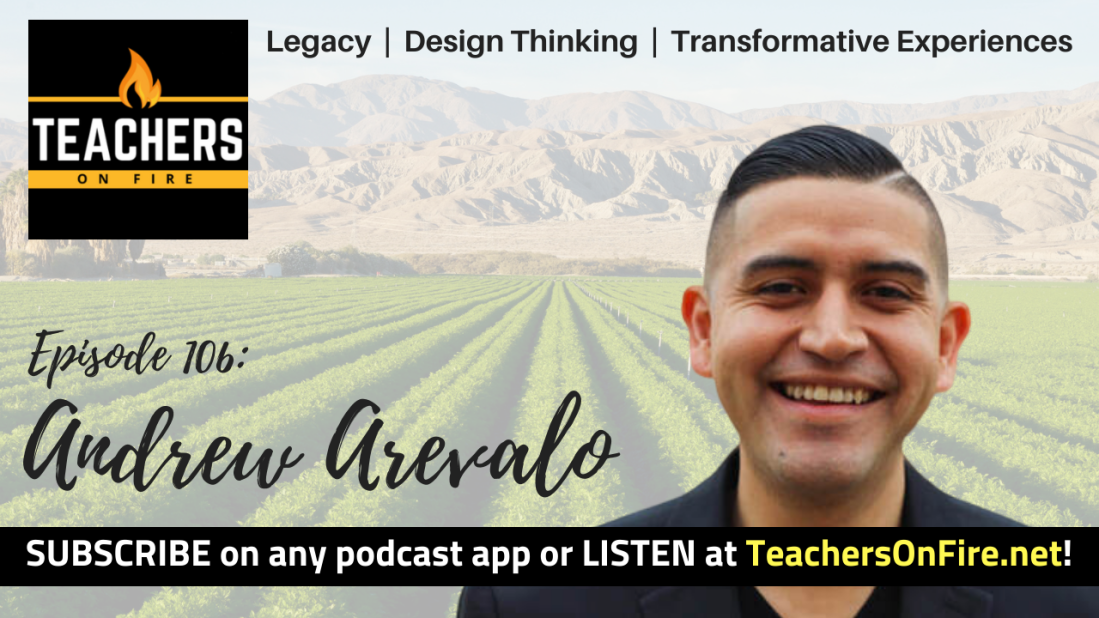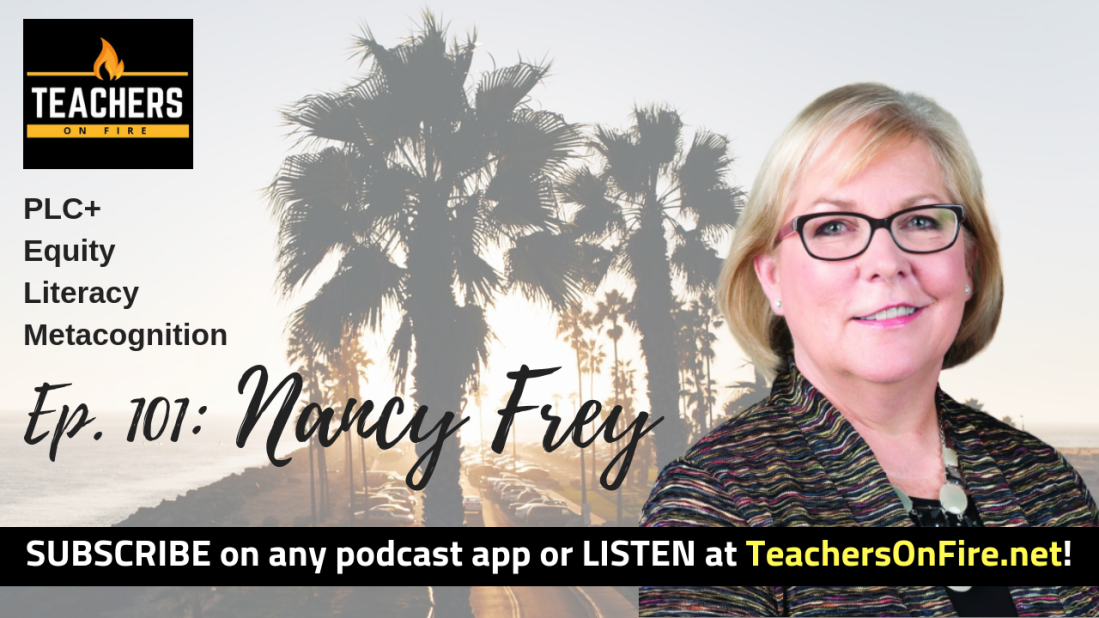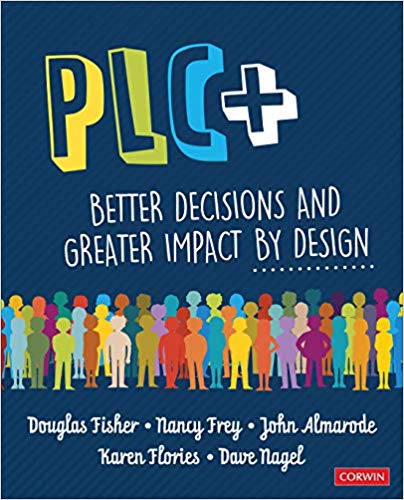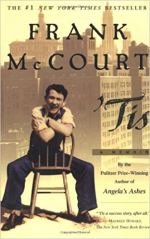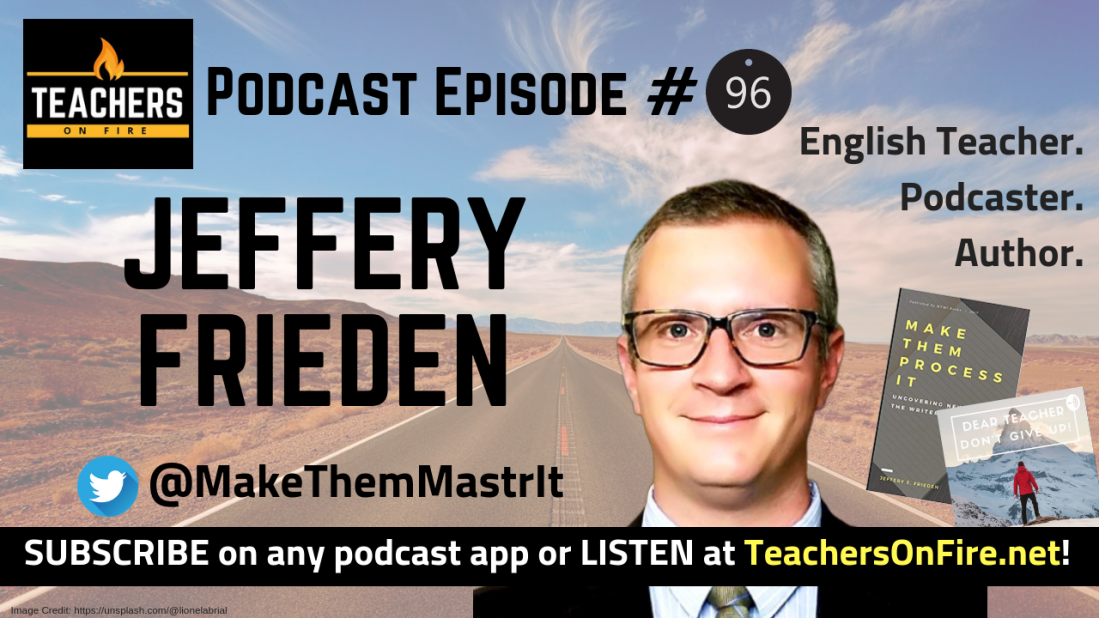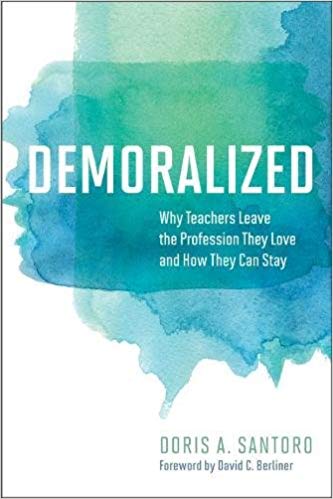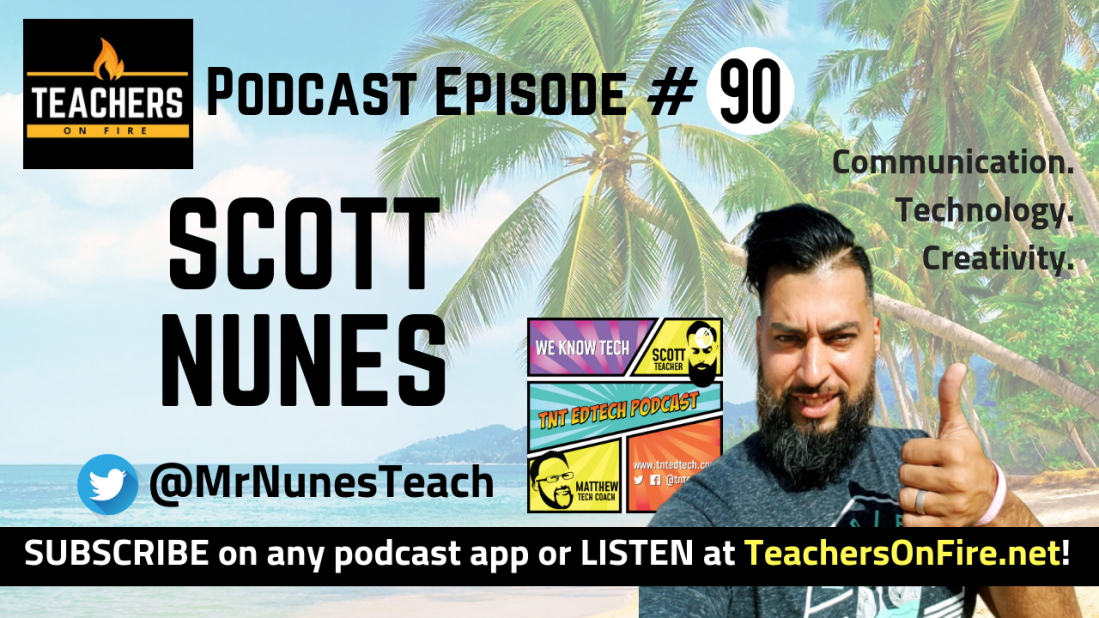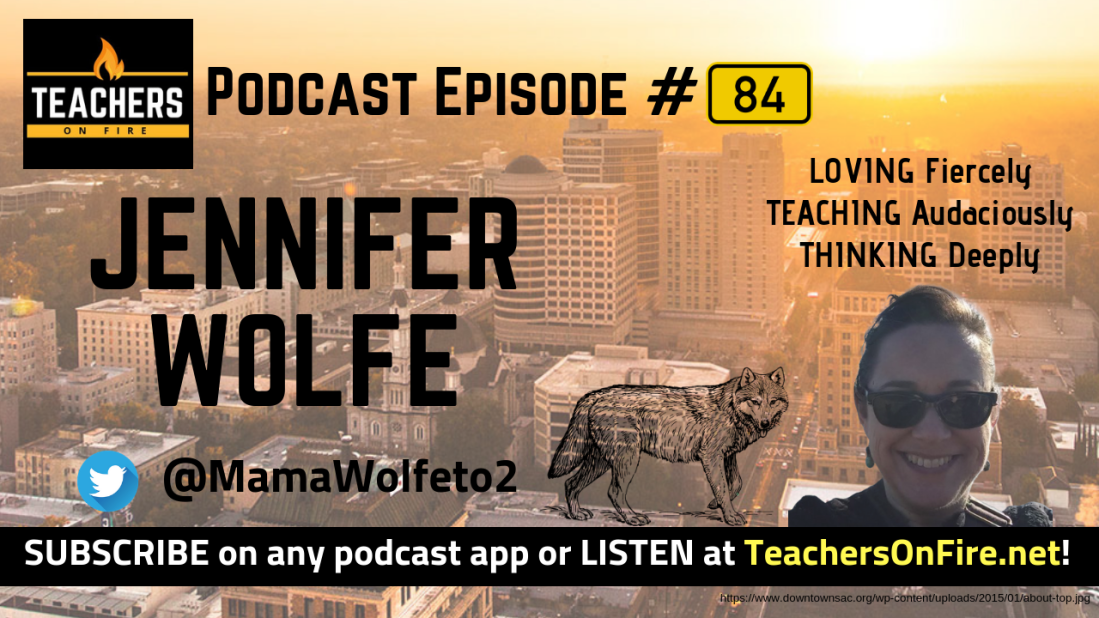Meet Andrew Arevalo
ANDREW AREVALO is a 4th grade educator in the city of El Centro in southern California. He is a speaker, innovator, and game designer with passions for blended learning, design thinking, and gamification. He also has his Master’s degree in education and has been recognized as a CUE Emerging Teacher.
From Delight to Disappointment
Andrew experienced some adversity as recently as last year, when he finally worked up the courage to speak at a national education conference. He was absolutely delighted when his proposal was accepted, but that joy was quickly followed by disappointment when he learned that he would be docked pay for the missed day of school. Eventually, after encouragement and support from family and friends, he decided to sacrifice the income in order to attend the conference and speak.
The experience was absolutely worth it, igniting his passions further and connecting him with other inspiring voices in education. To other educators who face similar financial dilemmas, Andrew says “You’ve got to go for it. You just never know who you’re going to meet, and who will inspire you.”
Like Father, Like Son
On July 7, 2019, Andrew tweeted this touching tribute to his father:
Next month, my dad will enter the classroom for his 42nd year.
He has seen more change than most will ever face (e.g., people, policy, pedagogy, etc.).
. . . And like everything around him, he has remained dynamic. 🌎
Change is scary.
. . . You’ll be ok though. 👍😊❤️
— Andrew Arevalo (@Gameboydrew) July 7, 2019
“First and foremost, I love my dad!” Andrew says. Greg Arevalo has generously served his community for decades, and he is well-known and loved by many as a result. It’s a tremendous legacy to step into, an honor that Andrew, his brother (a local high school principal), Andrew’s fiance, and his sister-in-law all carry with pride. Greg never pushed the path of education on his sons, but he quietly sold the profession by the joy that was so evident in his work and the growth he consistently witnessed in his learners.
How a Lost Pitch Event Led to a Game-Changing Opportunity
A few months ago, Andrew participated in a pitch event at the University of San Diego thanks to a connection with Lisa Dawley, Executive Director of the Jacobs Institute for Innovation in Education and someone Andrew calls an amazing soul. Andrew was pitching a model for personalized professional development in front of a Shark Tank-style panel of judges, and he followed acts like Sir Ken Robinsons and Dave Burgess.
Even though his pitch wasn’t selected as the winner, something very special came from the experience – he was invited to participate in an exclusive gathering of educators and intellectuals from all levels and contexts of education across America. The purpose of the gathering, held recently in New York City, was to support important conversations around some of the most pervasive problems and challenges that we face in education today. Andrew left the event completely invigorated and inspired by the expertise and vision shared by the other attendees. What he thought was a loss became a huge win.
What’s Setting Andrew on 🔥 in Education Today
Many of Andrew’s dearest passions continue to come directly from his own teaching practice and the activities happening right there in his classroom. Lately, his fourth graders have been developing future job titles and descriptions, university courses that will support these future jobs, buildings that will house and facilitate these future courses, and city infrastructures that could support the university campus with the sustainable development goals in mind.
Students are using cardboard and LEGO to build structure prototypes, and Andrew plans to record short day-in-the-life-of video presentations for each project that will be linked to unique QR codes, connecting parents with their child’s ideas and work.
A Professional Goal: More Reflection
One of the aspects that Andrew would like to strengthen in his professional practice is the reflective process. We’re all busy, we’re all moving fast, and too often we find it hard to find the time to give our professional projects and work the thoughtful analysis they deserve. Just as reflection and metacognition is valuable for our learners, these activities can’t help but make us better educators when we actually make the time to reflect. As he collects thoughts and impressions in a journal, they continue to inform and inspire his first book, another project that he can’t wait to share.
Personal Passions Away From Education
Andrew loves playing mobile games like Clash Royale, partly because they disconnect him and help him relax. Lately, he’s also enjoyed seeing an emerging trend of educators who game with their own children — a way that games can be used to strengthen family relationships.
A Productivity Habit: How can I make it better?
A go-to mindset that works for Andrew is to finish every project with the question of “How can I make it better?” Just as we discussed in the professional space, sound processes of reflection can make sure that we are constantly growing, evolving, and improving. Of course, the flip side of this question is “When is enough enough?” We have to balance that commitment of constant innovation with the need to let things go and simply move on.
Voices & Resources That Inspire Andrew’s Thinking
Over on Twitter, Andrew says you are simply missing out on life if you are not following @AnnKozma723. Ann is the Educator Innovation Lead at Flipgrid, and she brought nonstop ideas and inspiration when her Flipgrid team visited Andrew’s district recently.
For his edtech tool pick, Andrew is pointing out the Oculus Quest, an industry-leading VR set that is changing our understanding of what is possible in education.
 If a school day goes by and Andrew hasn’t read some of Amina’s Voice to his fourth graders, he hears about it! This book by Hena Khan unpacks identity, belonging, and purpose in clever and kid-friendly ways – a great addition to your classroom library.
If a school day goes by and Andrew hasn’t read some of Amina’s Voice to his fourth graders, he hears about it! This book by Hena Khan unpacks identity, belonging, and purpose in clever and kid-friendly ways – a great addition to your classroom library.
Another education podcast that Andrew is digging is OnEducation, hosted by Mike Washburn and Glen Irvin – two educators who are passionate about changing the game and giving air time to real conversations in the education space. Follow the podcast on Twitter @OnEducationPod.
For his YouTube channel recommendation, Andrew shouts out someone who he just happened to connect with at a coffee shop earlier this year. The channel is called Bernadette Teaches Music, and it’s hosted by a music teacher with international teaching experience. Follow her on Twitter @Ukuleleplazi.
The last great content that Andrew watched on Netflix was The Game Changers, a documentary about vegans who have transformed their mindsets and their bodies to achieve seemingly impossible feats. As a former vegan himself, Andrew found their message interesting and inspiring.
We sign off on this fun conversation, and Andrew gives us the best ways to follow him and connect online. See below for details!
You can connect with Andrew …
- On Twitter @GameBoyDrew
- At his website: http://www.gameboydrew.com/
Connect with the Teachers on Fire podcast on social media:
- On Twitter @TeachersOnFire
- On Instagram @TeachersOnFire
- On Facebook @TeachersOnFire
- On LinkedIn: Tim Cavey
- On Medium at The Teachers on Fire Magazine
- On YouTube: Teachers On Fire
Song Track Credits
- Intro: Stand Up (by Mike Cosmo — license purchased at https://taketones.com/)
- Outtro: Bluntedsesh4 (by Tha Silent Partner, courtesy of FreeMusicArchive.org)
